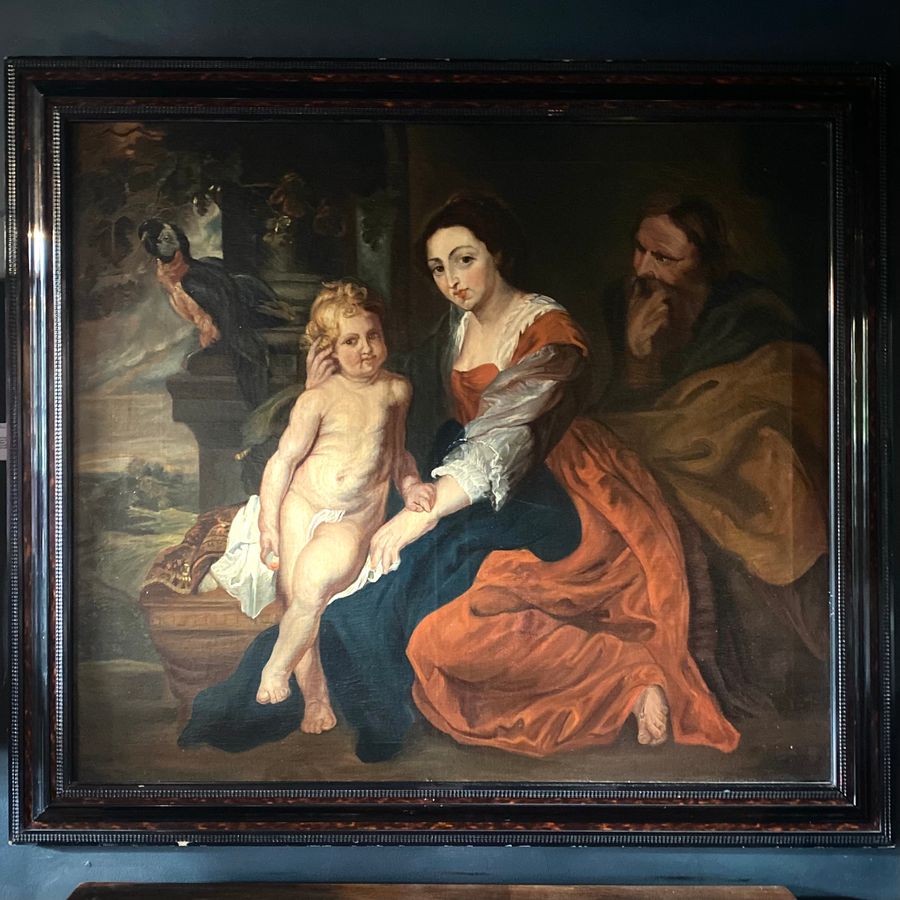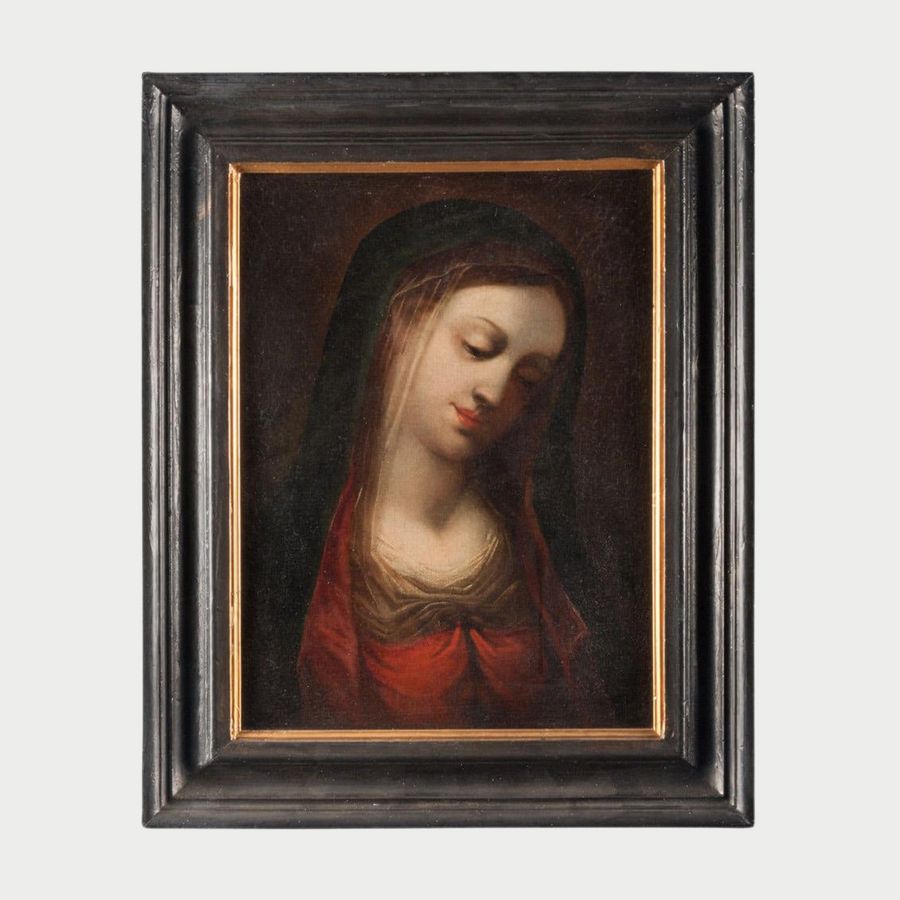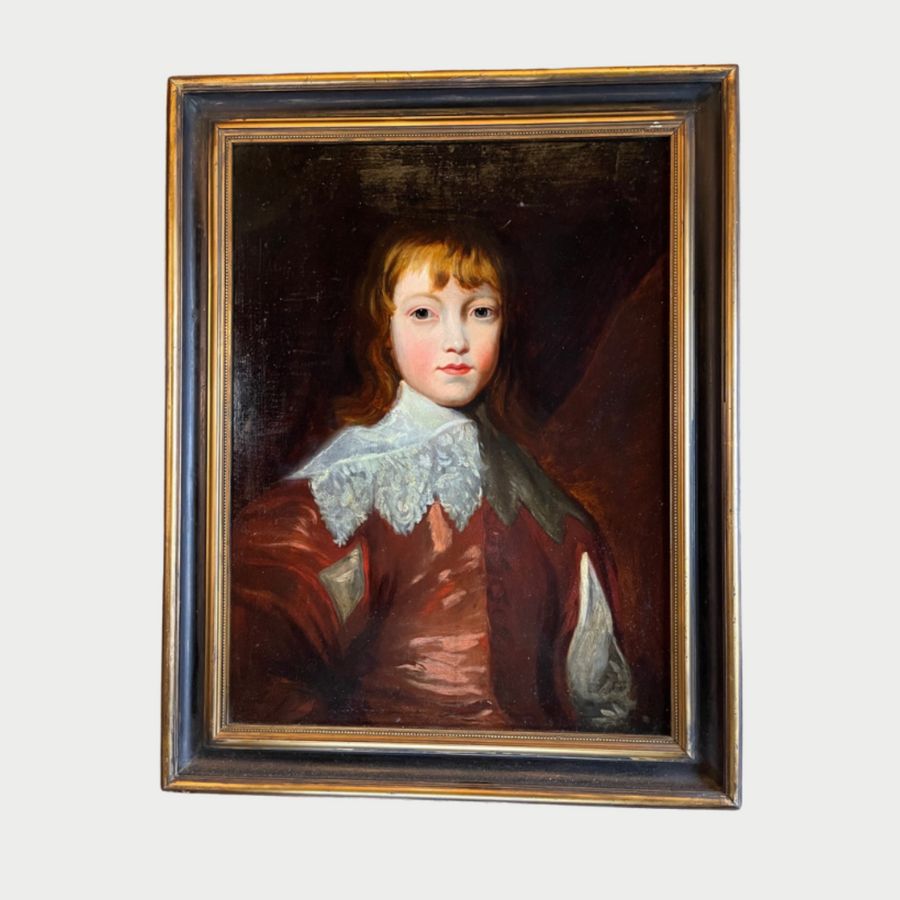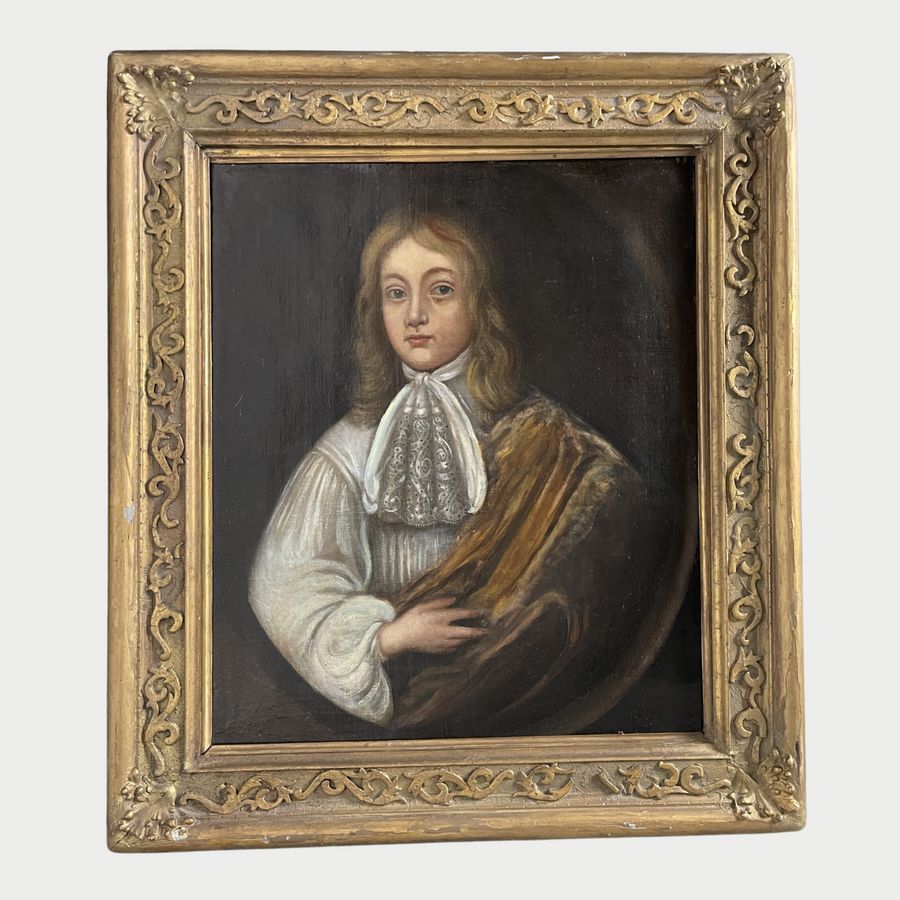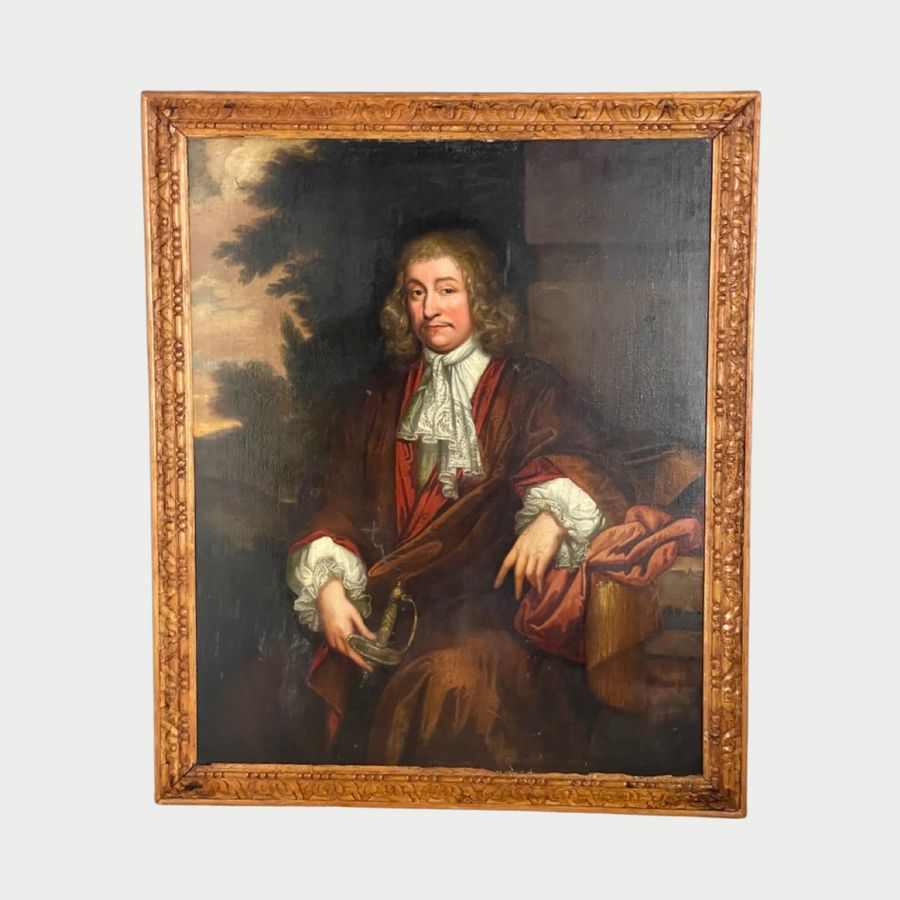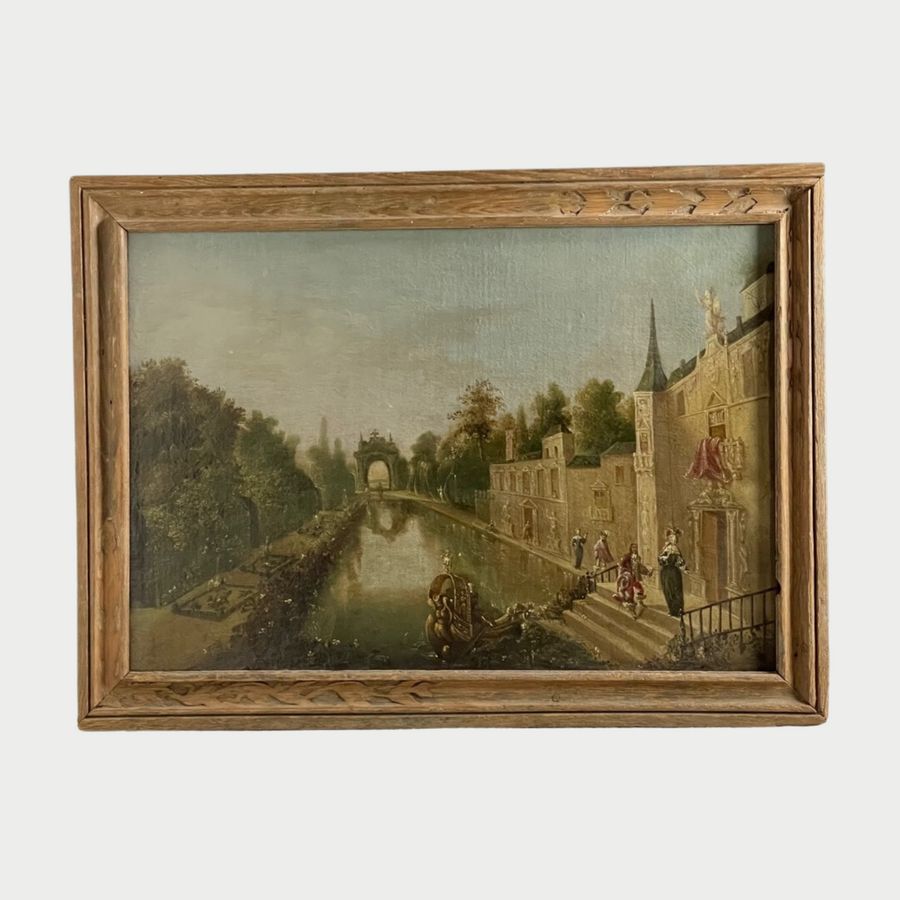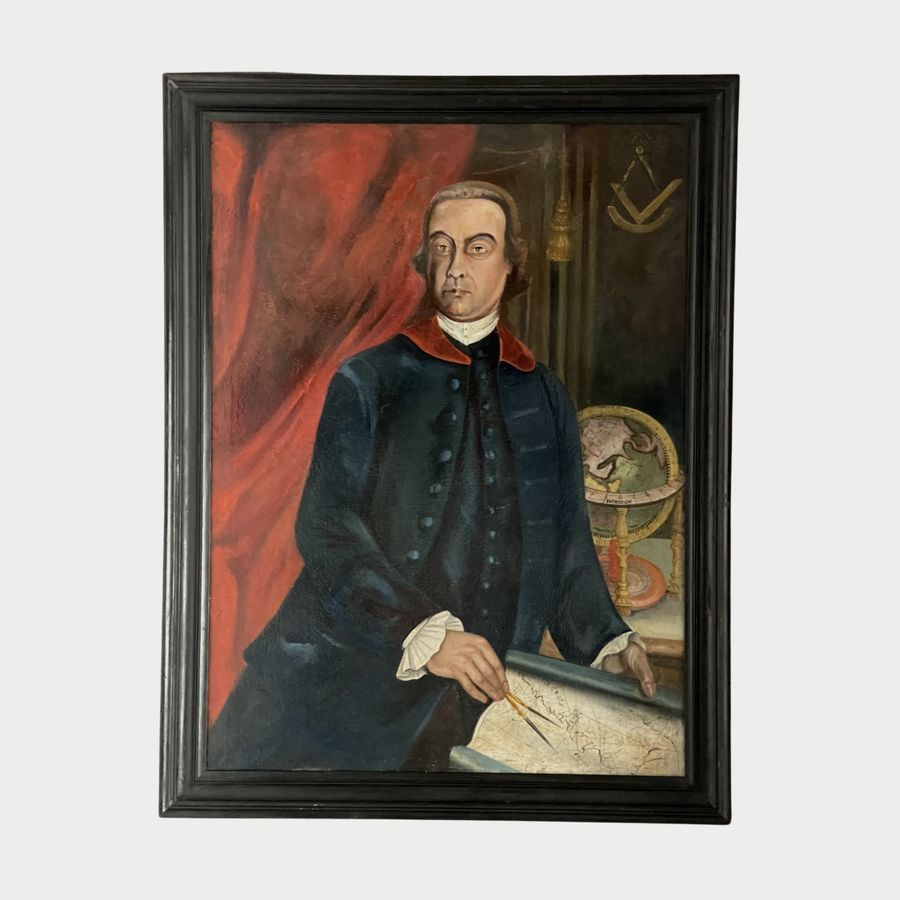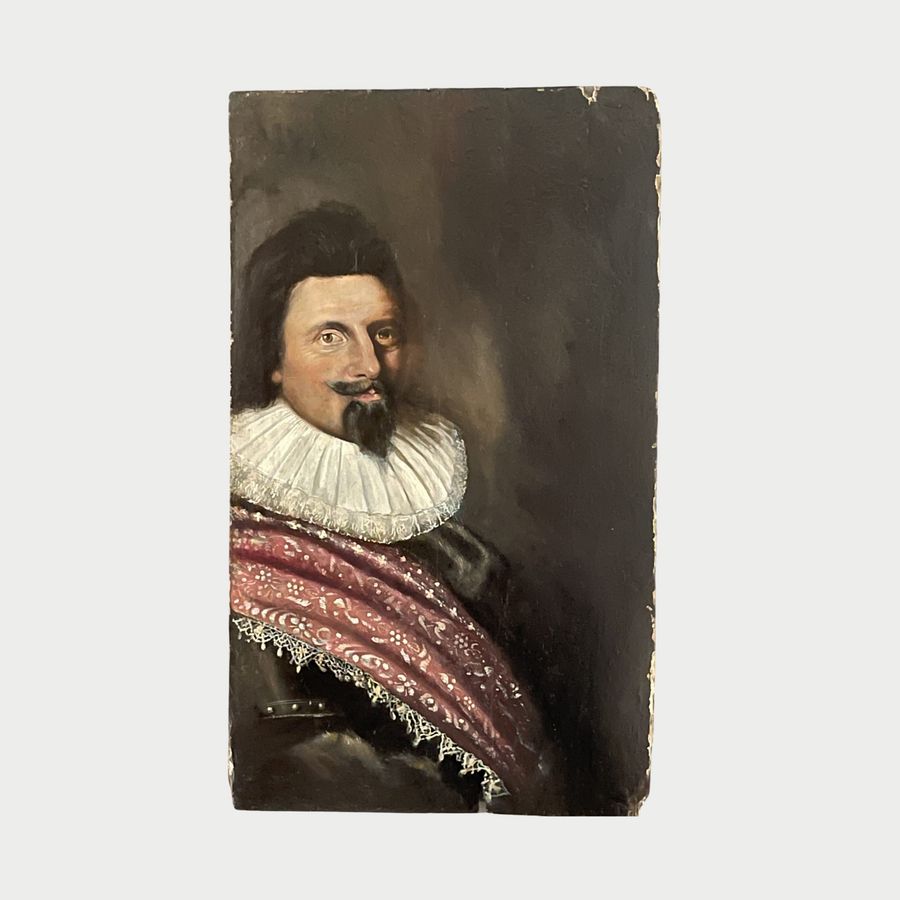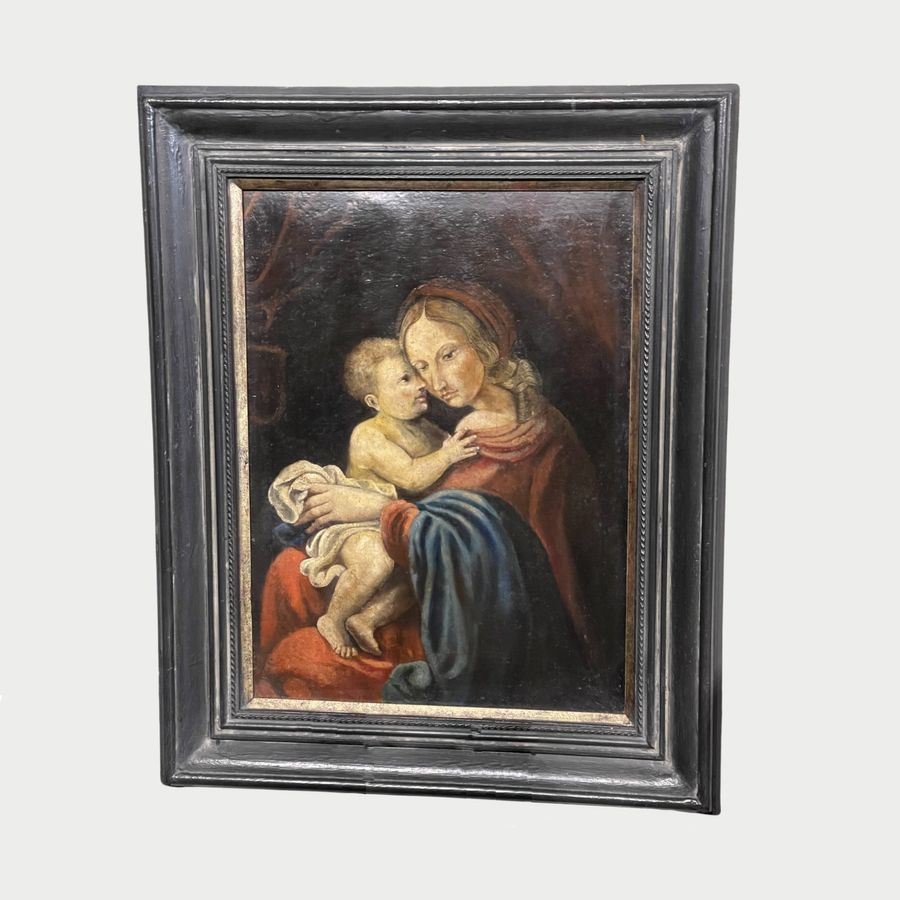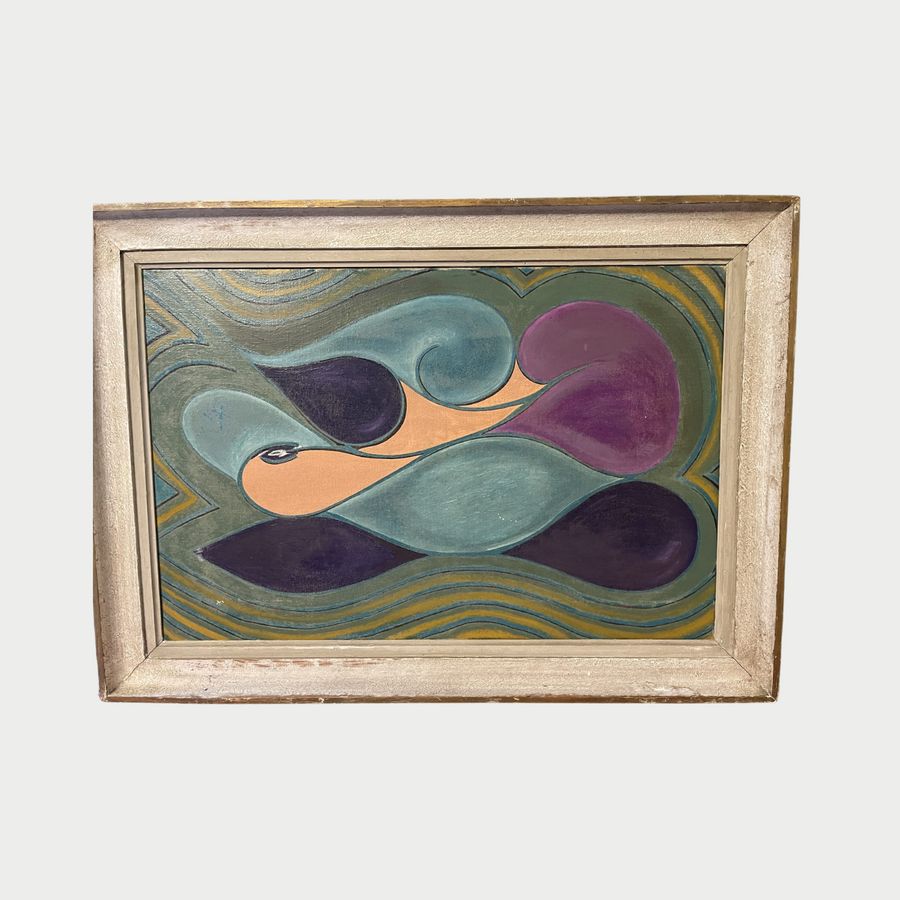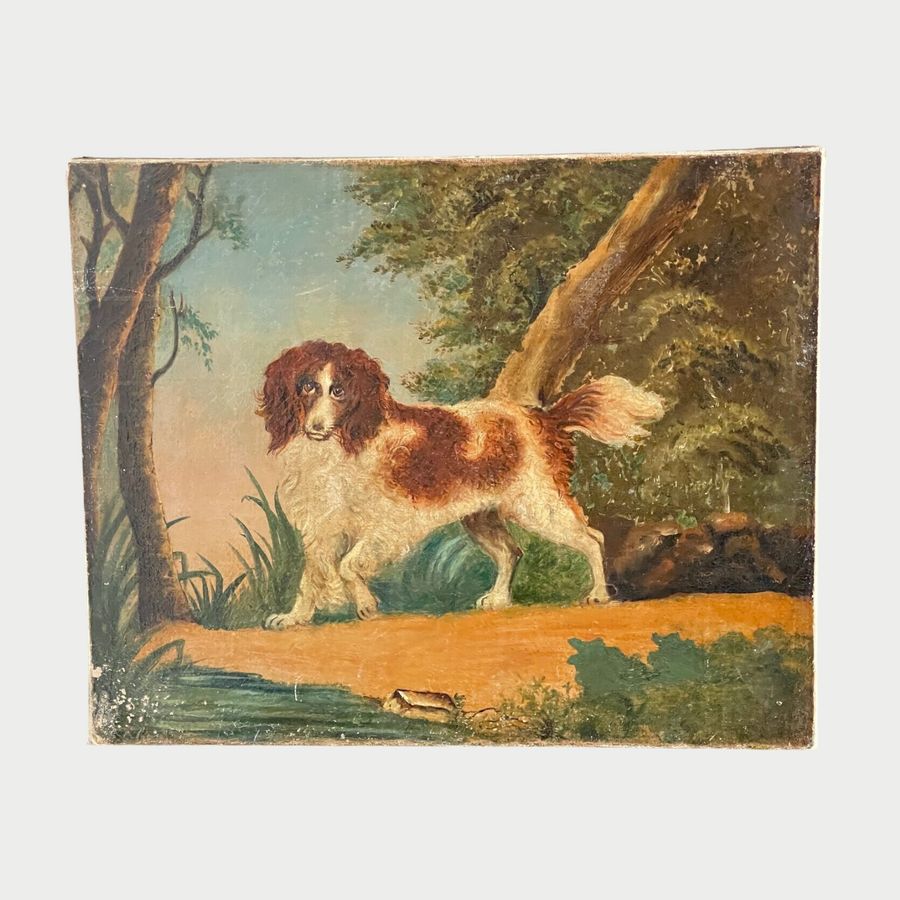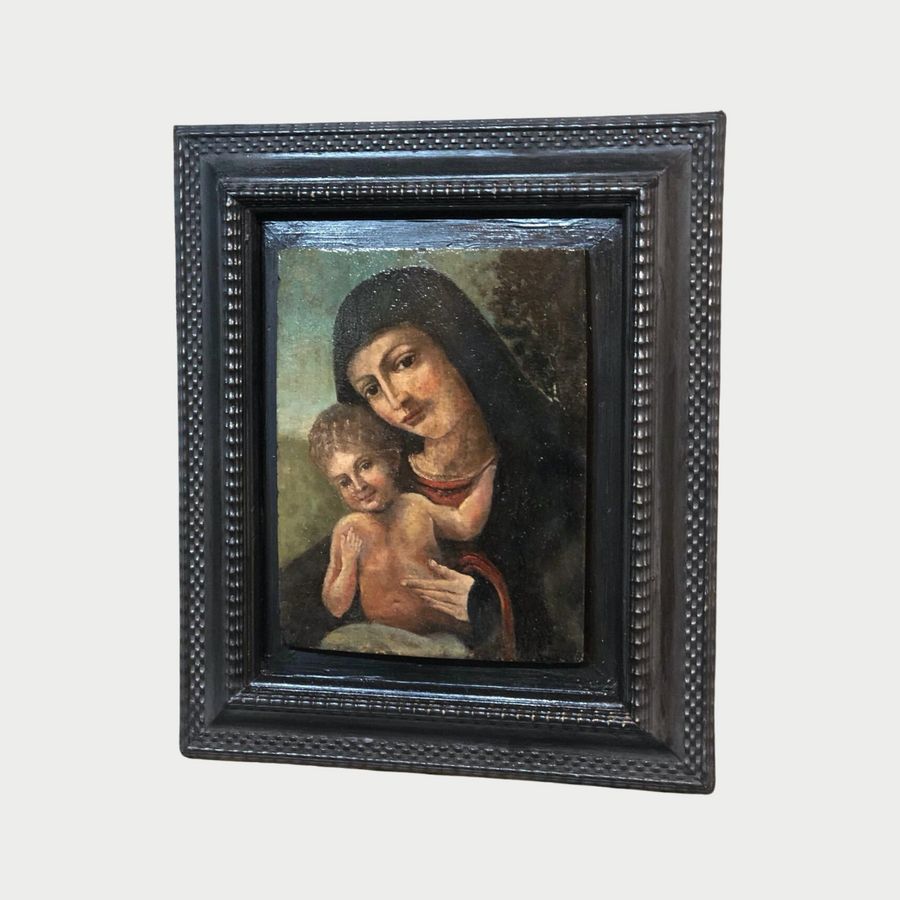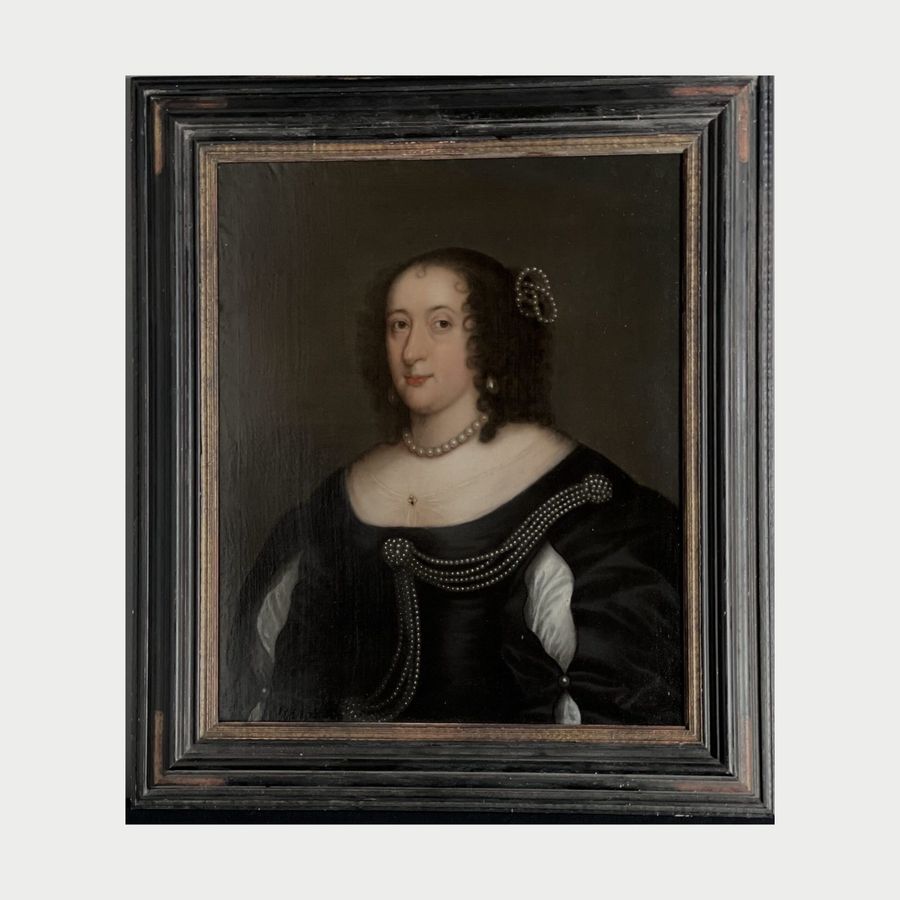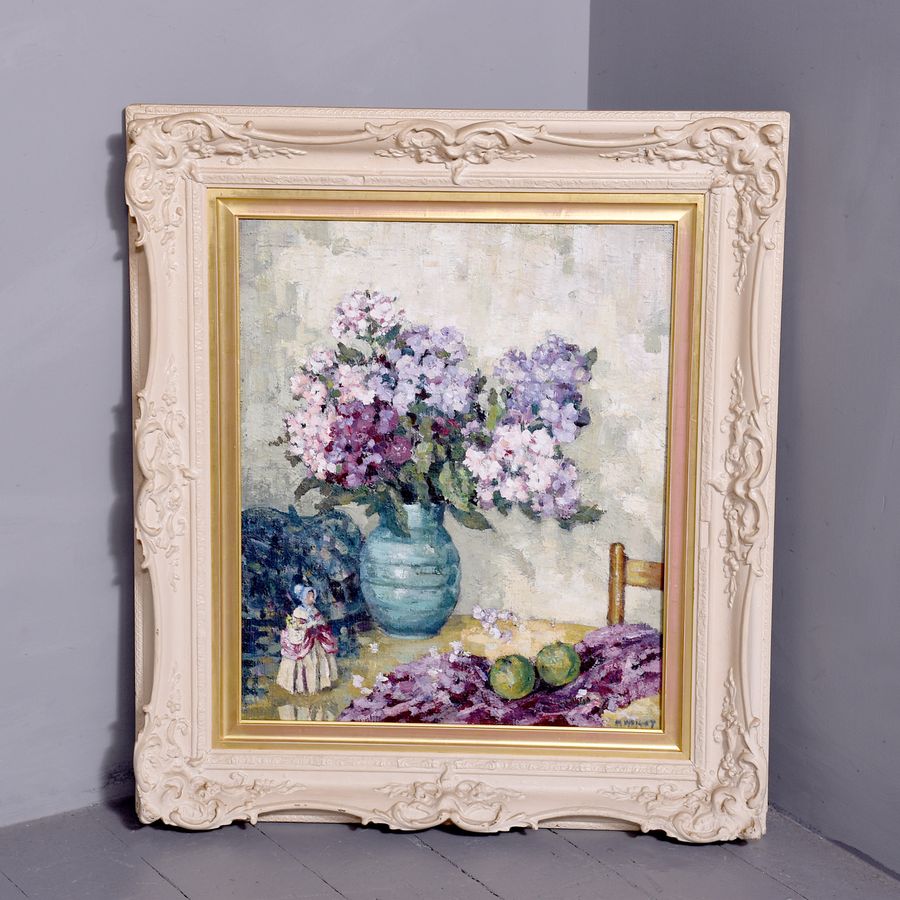featured item
antique art: paintings
Works of art created with paint.
-
DUTCH 18TH CENTURY PAINTING ON OAK PANEL
bore park antiques, nuneaton, united kingdom
Small framed oil painting showing it’s age, has artists initials bottom right corner, painted on oak panel very old possibly early 18th century typical Dutch composition, nice traditional wooden frame dark gilded gold paint, sizes...
£295.00
view details -
MASONIC VICTORIAN OIL PAINTING
bore park antiques, nuneaton, united kingdom
Painted on board in Gothic style frame in mahogany depicting the Masonic symbol ( The all seeing eye ) conditions superb sizes being, length of 84 cm height 53 cm depth 5 cm, offering free...
£795.00
view details -
A FRAMED OIL ON PANEL SEASCAPE IN THE MANNER OF TURNER
ebury trading, kent, united kingdom
An English oil on panel in gilt frame seascape, in the manner of Turner. c.1880-1900
£700.00
view details -
RESTORATION COMPLETED. Now been fully restored VICTORIAN SEASCAPE RESTORATION PROJECT
bore park antiques, nuneaton, united kingdom
Before and after restoration. Artists name on back of canvas, the paintings of a large sailing ship at anchor lots of detail castle on the bluff lots of figures of people, the canvas is in...
£1,295.00
view details -
'Shepherd Boy' after Sir Joshua Reynolds C.1800
cheltenham house antiques, broadway, united kingdom
After Sir Joshua Reynolds (1723-1792). Oil on Canvas. Circa late 18th / early 19th century. A fabulous homage to Sir Joshua Reynolds' original artwork titled 'Shepherd Boy'. Set within a 19th century gilded frame. Period:...
£6,000.00
view details -
'A Hedgehog Hunt' Attributed to Charles Towne C.1830
cheltenham house antiques, broadway, united kingdom
This portrait of a countryside hunting scene uses styles and methods which attribute it to Charles Towne (1763-1840). The beautiful piece displays a remarkably detailed hunting scene in the foreground, featuring onlookers and animals in...
£3,500.00
view details -
'Holy Family With Parrot' after Sir Peter Paul Rubens C.1870
cheltenham house antiques, broadway, united kingdom
A truly wonderful 19th Century oil on canvas, after Sir Peter Paul Rubens. After the original work of 1613-1615, this splendid oil on canvas pays a great homage to Rubens style of portraiture and captures...
£7,950.00
view details -
Three Gentlemen Play Cards Oil on Panel C.1720
cheltenham house antiques, broadway, united kingdom
A charming early Georgian portrait of three Gentlemen sat at a table, having a dandy time playing cards. This very attractive smaller scale painting sits within a gilt frame, showing signs of wear commensurate with...
£2,950.00
view details -
The First Steeple Chase on Record
georgian antiques, edinburgh, united kingdom
A set of 4 original hand coloured Aqua-prints after by ‘H. Aiken’ published 1st March 1862 by ‘Ben Brookes’, Oxford and engraved by ‘J. Harris’, the four plates with writing above and below the aqua-prints,...
£500.00
view details -
Oil painting of a spaniel, 18th century
peter bunting antiques, bakewell, united kingdom
An 18th Century Oil Painting on Oak of a spaniel
£1,100.00
view details -
Antique Flower painting on board, 19th century
peter bunting antiques, bakewell, united kingdom
An Antique Flower painting on board, 19th century. Re framed and some miner restoration
£1,100.00
view details -
16th Century Oil Painting
peter bunting antiques, bakewell, united kingdom
A fine 16th century oil on canvas, re- framed
£4,500.00
view details -
Oil Painting on board c1820
peter bunting antiques, bakewell, united kingdom
Painting of boy with lace collar detail of (Van Ducks George Villers) c1820.Oil painting on board
£2,850.00
view details -
C1680 oil on canvas portrait of a young man
peter bunting antiques, bakewell, united kingdom
C1680 oil on canvas portrait of a young man in a 19the century gilt frame. 83x73 cms. Restoration label reverse
£4,950.00
view details -
17th Century oil on canvas Josiah Childs attributed to John Riley
peter bunting antiques, bakewell, united kingdom
17th Century oil on canvas Josiah Childs attributed to John Riley. 138 x 116cms In original frame
£11,500.00
view details -
Oil On Canvas of a River Scene
peter bunting antiques, bakewell, united kingdom
Good oil on canvas of a river scene with figures c1680 in oak frame
£8,500.00
view details -
18th Century Oil on canvas portrait painting
peter bunting antiques, bakewell, united kingdom
Oil on canvas portrait painting said to John Senex cartographer 18c good condition and reframed
£2,850.00
view details -
Oil on oak panel c1620
peter bunting antiques, bakewell, united kingdom
Oil on oak panel c1620
£2,850.00
view details -
16th/17th Century Oil on Canvas Madonna and Child
peter bunting antiques, bakewell, united kingdom
A 16th/17th Century Oil on Canvas Madonna and Child
£3,250.00
view details -
Abstract painting by Joyce Brooks
peter bunting antiques, bakewell, united kingdom
An Abstract painting by Joyce Brooks
£1,200.00
view details -
Oil on canvas of a spaniel unframed C1790
peter bunting antiques, bakewell, united kingdom
Oil on canvas of a spaniel unframed size 44cms x 36cms. c1790 in good condition
£1,850.00
view details -
15th Century Madonna and child painted on walnut
peter bunting antiques, bakewell, united kingdom
A 15th Century Madonna and child painted on a walnut panel. Attributed to the late Rondinelli and school, with restoration and re-framed
£3,900.00
view details -
Early 17th Century portrait of a lady
peter bunting antiques, bakewell, united kingdom
Early 17th Century portrait of a lady
£6,000.00
view details -
Oil Painting by Margaret Wright
georgian antiques, edinburgh, united kingdom
Circa 1930s. A large still oil painting of a vase with Phlox and some fruit, on a table, with stylish gilt slip, all contained in a painted, swept, moulded frame. The painting is signed on...
£750.00
view details -
Victorian Oil Painting Trinity Church Liverpool By Moonlight By Walter Meegan Pupil Grimshaw C189...
cheshire antiques consultant ltd, london, united kingdom
British Victorian Oval Oil Painting Trinity Church Liverpool By Moonlight By Walter Linsley Meegan. Make a big statement, amaze your clients & guest by adding this nocturnal masterpiece to your office & home wall space...
£4,950.00
view details











